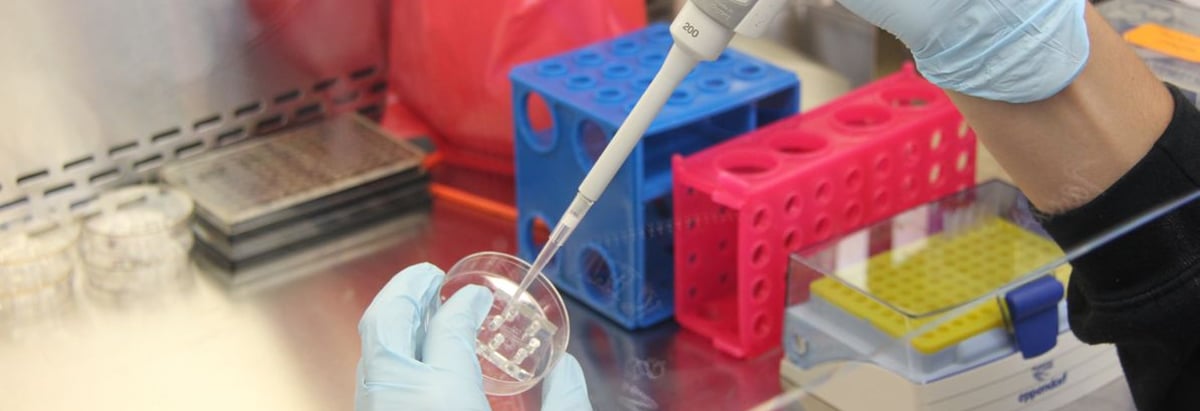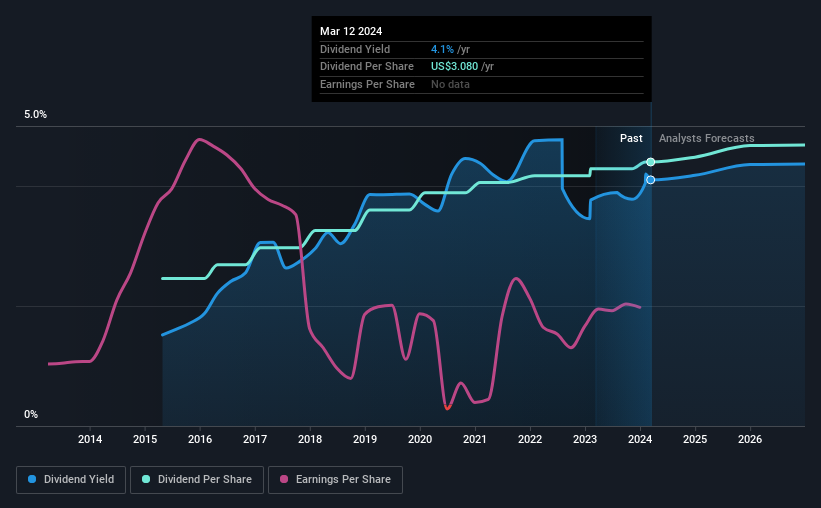- United States
- /
- Biotech
- /
- NasdaqGS:GILD
Gilead Sciences' (NASDAQ:GILD) Dividend Will Be Increased To $0.77

Gilead Sciences, Inc.'s (NASDAQ:GILD) dividend will be increasing from last year's payment of the same period to $0.77 on 28th of March. This will take the dividend yield to an attractive 4.1%, providing a nice boost to shareholder returns.
Check out our latest analysis for Gilead Sciences
Gilead Sciences' Earnings Easily Cover The Distributions
While it is great to have a strong dividend yield, we should also consider whether the payment is sustainable. Based on the last payment, Gilead Sciences was quite comfortably earning enough to cover the dividend. This indicates that quite a large proportion of earnings is being invested back into the business.
The next year is set to see EPS grow by 31.5%. Assuming the dividend continues along recent trends, we think the payout ratio could be 55% by next year, which is in a pretty sustainable range.

Gilead Sciences Doesn't Have A Long Payment History
Even though the company has been paying a consistent dividend for a while, we would like to see a few more years before we feel comfortable relying on it. The annual payment during the last 9 years was $1.72 in 2015, and the most recent fiscal year payment was $3.08. This implies that the company grew its distributions at a yearly rate of about 6.7% over that duration. The dividend has been growing as a reasonable rate, which we like. However, investors will probably want to see a longer track record before they consider Gilead Sciences to be a consistent dividend paying stock.
The Dividend's Growth Prospects Are Limited
Investors could be attracted to the stock based on the quality of its payment history. However, Gilead Sciences' EPS was effectively flat over the past five years, which could stop the company from paying more every year. Growth of 1.6% per annum is not particularly high, which might explain why the company is paying out a higher proportion of earnings. This isn't necessarily bad, but we wouldn't expect rapid dividend growth in the future.
Our Thoughts On Gilead Sciences' Dividend
Overall, this is a reasonable dividend, and it being raised is an added bonus. The payout ratio looks good, but unfortunately the company's dividend track record isn't stellar. The dividend looks okay, but there have been some issues in the past, so we would be a little bit cautious.
Companies possessing a stable dividend policy will likely enjoy greater investor interest than those suffering from a more inconsistent approach. Still, investors need to consider a host of other factors, apart from dividend payments, when analysing a company. For example, we've picked out 3 warning signs for Gilead Sciences that investors should know about before committing capital to this stock. Looking for more high-yielding dividend ideas? Try our collection of strong dividend payers.
New: Manage All Your Stock Portfolios in One Place
We've created the ultimate portfolio companion for stock investors, and it's free.
• Connect an unlimited number of Portfolios and see your total in one currency
• Be alerted to new Warning Signs or Risks via email or mobile
• Track the Fair Value of your stocks
Have feedback on this article? Concerned about the content? Get in touch with us directly. Alternatively, email editorial-team (at) simplywallst.com.
This article by Simply Wall St is general in nature. We provide commentary based on historical data and analyst forecasts only using an unbiased methodology and our articles are not intended to be financial advice. It does not constitute a recommendation to buy or sell any stock, and does not take account of your objectives, or your financial situation. We aim to bring you long-term focused analysis driven by fundamental data. Note that our analysis may not factor in the latest price-sensitive company announcements or qualitative material. Simply Wall St has no position in any stocks mentioned.
About NasdaqGS:GILD
Gilead Sciences
A biopharmaceutical company, discovers, develops, and commercializes medicines in the areas of unmet medical need in the United States, Europe, and internationally.
Undervalued moderate and pays a dividend.
Similar Companies
Market Insights
Community Narratives




